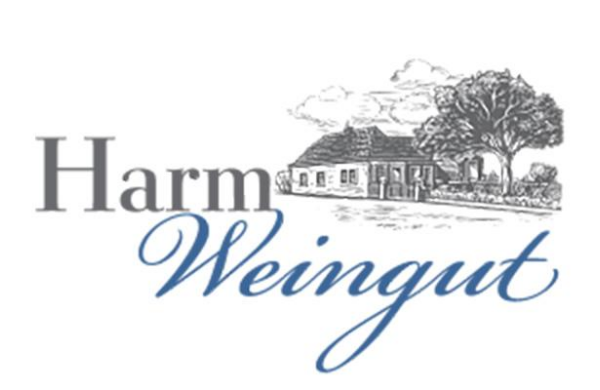Harm
Maria and Andreas Harm had actually planned their professional lives completely differently. But then they couldn't resist the temptation and founded one of the most dynamic and cheerful wineries in the country in 2010.
For many years they worked in Andreas Harm's parents' winery in their free time. At some point they knew that it was time: to found their own winery, to acquire and lease vineyards, and to manage them themselves. Maria and Andreas Harm have decided to live with the vines and in nature. Until then, they had worked in other academic jobs, Maria as a French teacher, Andreas as an organic wine-growing consultant and scientific researcher in the wine laboratory. Even if the working days are significantly longer today than before, looking at what has been achieved makes up for this with even more satisfaction. “We are relaxed, the vines notice that too.” The well-known wine critics have long since noticed that something special is being created here - the first top ratings for all wines and enthusiastic descriptions speak for themselves.
As luck would have it, the winemaker couple was quickly offered two vineyards in famous Wachau locations. Fine-fruity, spicy-mineral Riesling with origins in Hollerin and Kellerberg was immediately well received and so the next steps could be taken. There were also plots on the Kremser Wachtberg and finally in Alauntal, an idyllic spot not far from the left bank of the Danube, where they even took over some of the vineyards as fertile fallow land. While only Grüner Veltliner and Riesling are planted in all vineyards, a few rows of Roter Veltliner vines were also added in Alauntal. Maria and Andreas Harm are happy to accept the additional effort of cultivating a number of smaller vineyards in different locations. Rather, they see it as an attraction to get involved in different circumstances.
It was clear from the start that they would farm the vineyards organically. “Organic winegrowing is normal winegrowing for us,” is the conviction of the winemaker couple. Both have experienced this as a matter of course through their many years of working in Andreas Harm's parents' organic winery. If a new vineyard is taken over, the conversion to organic takes place immediately. Andreas Harm benefits from the relevant scientific knowledge and experience from his job as a consultant. He sees the vineyard as a living space whose self-sufficient system needs to be strengthened. For example, by exposing an embankment near the Hollerin site in order to promote biodiversity. “Bee-eaters have now settled there again.” The same applies when it comes to nurturing old vines after taking over a vineyard, as their substance has enormous potential.
While the winemaker couple was initially able to use the structures in Andreas Harm's parents' winery, with slow growth the need for their own wine cellar arose. Through a lucky coincidence, they were able to move into an old cellar in Krems, with an ideal indoor climate of a constant eight degrees - and a 500-year-old and extremely eventful history. “It's been 100 years since wine was last made here.” After extensive adaptation work, the first vintage was pressed at the new location in 2014. Minimalism is the obvious concept. During the harvest, the winemaker couple selects the grapes meticulously in the vineyard, they are pressed in the cellar and finally fermented spontaneously - "it worked as if by itself right from the start." When it comes to ripening, the winemaker attaches great importance to long-term contact of the wines with the coarse grapes. and fine yeast. This promotes their longevity and also promotes their independent character. Most of the filling takes place in August of the following year. A special feature is that all wines are bottled as single-vineyard wines. The exception is the Grüner Veltliner FIO (four in one) as a fun entry-level wine, the name of which refers to the four vineyards from which the grapes come.
Philosophy
Minimalism - pure is our cellar philosophy! No additives, no adulterations, no exaggerated technology but controlled “laissez-faire” determine our winemaking process.
For this reason, we allow ourselves to bottle the wines only when the time is right. The focus should not be on marketability as quickly as possible, but rather enough time for development and development. Therefore, single-vineyard wines only come onto the market in the summer of the year following the harvest and reserve wines only come onto the market one year after the harvest at the earliest.
Contact Us

